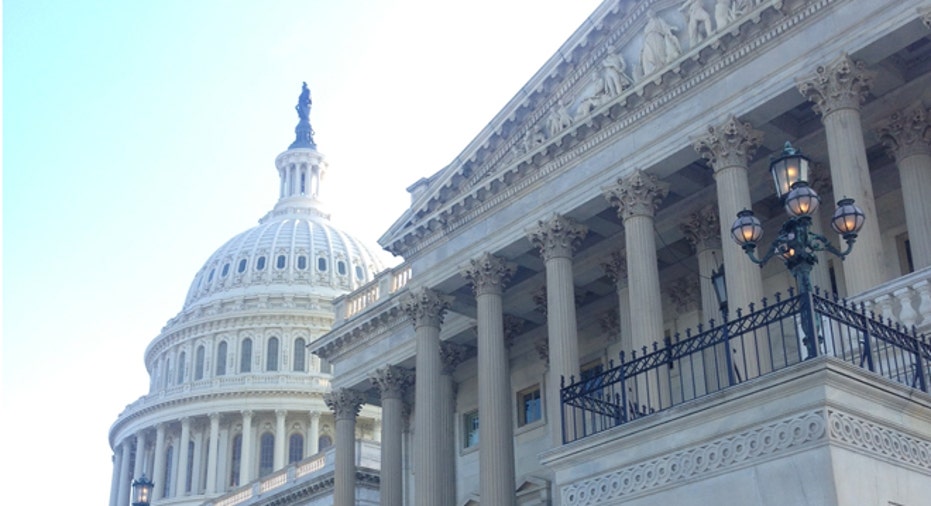CBO Warns National Debt is On Unsustainable Path

The Congressional Budget Office said Tuesday the nation's debt is on an unsustainable path and warned that by 2038 if current law continues federal debt held by the public would hit 100% of GDP.
The nonpartisan CBO added by the same timeframe if no action by Congress is taken entitlement spending would increase to 14% of GDP, or twice the average over the last 40 years, and the annual deficit would grow to 6.5% GDP, bigger than any year between 1947 and 2008.
“The unsustainable nature of the federal government’s current tax and spending policies presents lawmakers and the public with difficult choices,” the CBO wrote in its latest report on the long-term budget outlook.
Unless “substantial changes are made to the major health care programs and Social Security,” in the future those programs will drain an ever larger amount of the total economy’s output, the report warns.
It's hardly the first time the CBO has warned that the current spending and borrowing policies are unsustainable.
In a speech on the economy on Monday, President Obama said there's a growing need to streamline government programs in an effort to control costs and spending.
"I do believe we should cut out programs that we don't need. We need to fix ones that aren't working the way they're supposed to or have outlived their initial mission. We've got to make government faster and more efficient," he said.
If the nation’s debt problems are not addressed the impact would be felt well before 2038, the CBO warned. Investors will start to doubt the government’s ability to pay its debt obligations, which will make it more difficult and expensive for the U.S. to borrow.
“Moreover, even before that point was reached, the high and rising amount of debt that CBO projects under the extended baseline would have significant negative consequences for both the economy and the federal budget,” the CBO wrote.
The ramifications of doing nothing include:
- Federal spending on interest payments will rise which will in turn require more significant changes in tax and spending policies to achieve any chosen targets for budget deficits and debt.
- The government would have less flexibility to use tax and spending policies to respond to unexpected challenges, such as economic downturns or wars.
- The risk of a fiscal crisis—in which investors demanded very high interest rates to finance the government’s borrowing needs—would increase.
Speaker of the House John Boehner (R-Ohio) issued a statement on the CBO’s findings: “CBO’s latest report serves as yet another warning that Washington must act now to rein in our massive deficits and debt, which are hurting our economy, costing jobs, and jeopardizing the American Dream for our kids and grandkids. Ten thousand baby boomers are retiring every day, and as CBO notes these deficits and debt are unsustainable,” Boehner said.
Recent tax increases and federal budget cuts, including the sequester, the across-the-board cuts that took effect earlier this year, will reduct debt in the short-term, according to the CBO. The annual deficit will fall to 2% of GDP by 2015. And by 2018 federal debt held by the public will fall to 68% of GDP, down from 73% now.
After that, however, deficits would gradually rise because of growing entitlement and interest costs.
Under alternative scenarios that include deficit reduction, the picture is somewhat rosier.
For example, if Congress enacts $2 trillion in deficit reduction programs by 2023 debt held by the public will amount to 67% of GDP by 2038 and output would be higher and interest rates lower. And if Congress enacts $4 trillion in deficit reduction by 2023 debt held by the public would fall to 31% of GDP by 2038.



















